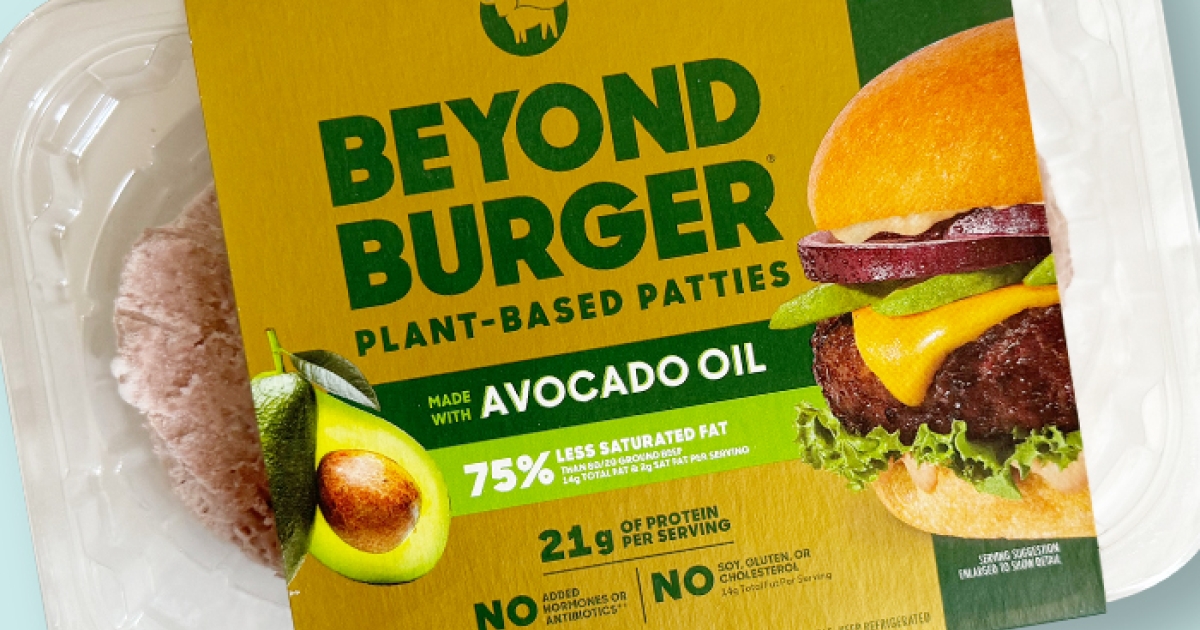
“We are thrilled to share our 4th generation burger, Beyond Burger IV, a mouthwatering meaty burger built from the goodness of plants,” says the package. Here’s what’s changed.
This article comes from Nutrition Action. We don’t accept any paid advertising or corporate or government donations. Any products we recommend have been vetted by our staff and are not advertisements by the manufacturers. They’re just healthy foods we think you’d like to know about!
The previous Beyond Burgers got their fat from an oil blend made with enough (unhealthy) coconut oil to hit 5 grams of saturated fat in a 4 oz. patty. That’s a quarter of a day’s max and close to the 7 grams you’d get in a similar-sized McDonald’s Quarter Pounder beef patty.
So it’s about time the plant-based phenom got an oil change. The new Beyond subs avocado oil for the coconut oil blend, which slashes the sat fat to just 2 grams. That’s beyond great!
More pluses: The latest version has less sodium than the old Beyond Burger (310 milligrams, vs. 390), but just as much protein (21 grams) and no more calories (230).
And animal-based beef creates more greenhouse gas emissions, takes more water to produce than any other food, and is a probable human carcinogen. So beef eaters might want to consider looking Beyond.
On the downside, a two-patty pack of Beyond Burgers can cost $5 to $8. Solution: Make less-processed tofu, tempeh, and beans your go-to plant-based proteins most of the time. They’re cheaper and healthier than plant-based meats.
Tips for choosing healthier plant-based meats from any brand
- Prioritize protein. A plant-based burger, “chick’n” patty, etc., will typically replace a meal’s protein-rich main event, so look for at least 10 grams of protein per serving.
- Minimize sodium. It’s not easy to make plants taste like meat, so manufacturers lean on salt…but some use more than others. Aim for no more than 400 milligrams of sodium per serving.
- Meatless or vegan? Most veggie meats get their protein from soy, wheat, peas, and/or beans. But some (like MorningStar Grillers) also add egg white, so they’re vegetarian but not vegan. If that matters to you, check the ingredients.
- Check the ingredients list for color additives that may pose a cancer risk. Titanium dioxide and Red 3 are two that may show up in the plant-based meat aisle. Titanium dioxide is a whitener found in some plant-based “chik’n” or “f’sh.” Its nanoparticles may damage DNA, one way chemicals can cause cancer. The food dye Red 3 is in MorningStar’s veggie bacon.
- Shop around. Your grocer may stock patties, nuggets, etc., in either the refrigerator or freezer case. For the best texture, check the package instructions to see whether products that have been frozen need to be defrosted before cooking.
Learn more: How to choose the best plant-based burgers & beyond
